Drag Race UK’s Divina de Campo on genderless awards and the rising tide of anti-drag sentiment
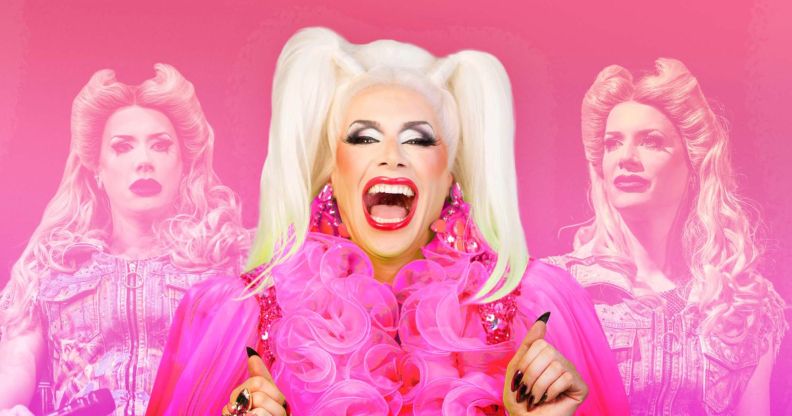
Drag Race UK legend Divina De Campo has become a star of the theatre stage. (Supplied/The Other Richard)
Divina de Campo has spent much of this year “in her drag king era”, as she puts it. The RuPaul’s Drag Race UK star been appearing as the “masculine”, egotistical planktonic copepod Plankton in a UK tour of The SpongeBob Musical, alongside Pop Idol’s Gareth Gates.
SpongeBob is one in a long line of projects that Divina has lined up since finishing as runner-up on Drag Race UK season one in 2019. Most of those have been on the stage: she was Mary Sunshine in a UK tour of Chicago, gave an award-nominated performance in Hedwig and the Angry Inch last year, and seems to have been in more pantos than Cinderella herself.
“Since lockdown ended, I haven’t stopped. Since 2020, I’ve had about six weeks off,” she tells PinkNews, adding with a howl: “I’m ready for a break!”
Theatre has always been a home for Divina. Her first role came at junior school, as the narrator in Orpheus in the Underworld (“An unimaginable amount of work went into that,” she insists, half-joking). She later took on “semi-professional” roles while studying dance and drama at Manchester Metropolitan University.
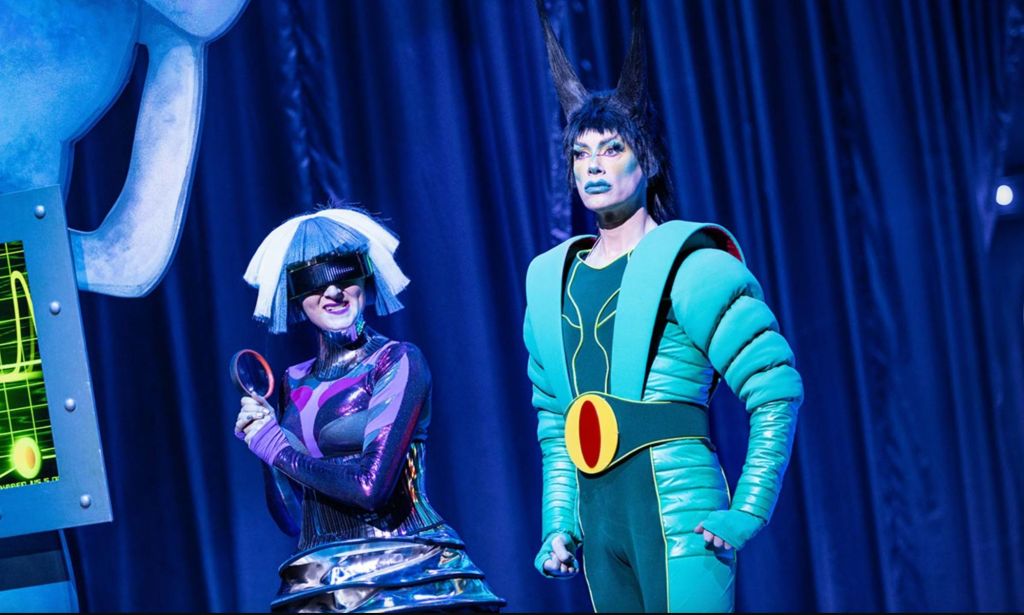
Divina didn’t have to audition much for the roles after university: they were usually offered to her by friends of friends. “Then, after Drag Race, there’s been weirdly more auditioning. You would’ve expected less auditioning, but no, they want me to audition,” she says, her voice contorting into her signature shrill laugh.
While many of her Drag Race UK sisters have opted to return to reality TV or head out on nationwide drag tours, Divina appears to have made theatre a permanent career. But, even as a seasoned performer, disappointment comes more frequently than success when it comes to bagging roles.
“This industry is notoriously difficult to crack,” she says, “because there are so many of us and everybody’s competing for the same jobs.”
At the beginning of next month, she’ll be hosting The Stage Debut Awards, a ceremony dedicated to celebrating those who have cracked that glass ceiling. Last year’s winners include Killing Eve’s Jodie Comer for her West End debut in Prima Facie and Divina’s Hedwig co-star Elijah Ferreira.
The presenting gig is one she’s looking forward to, particularly as someone who knows how tough the industry can be. “It shines a spotlight on those people who have something really special,” she says. Then, again with a guffaw, she adds: “It gives space for those people who are going to do me out of a job, frankly.”
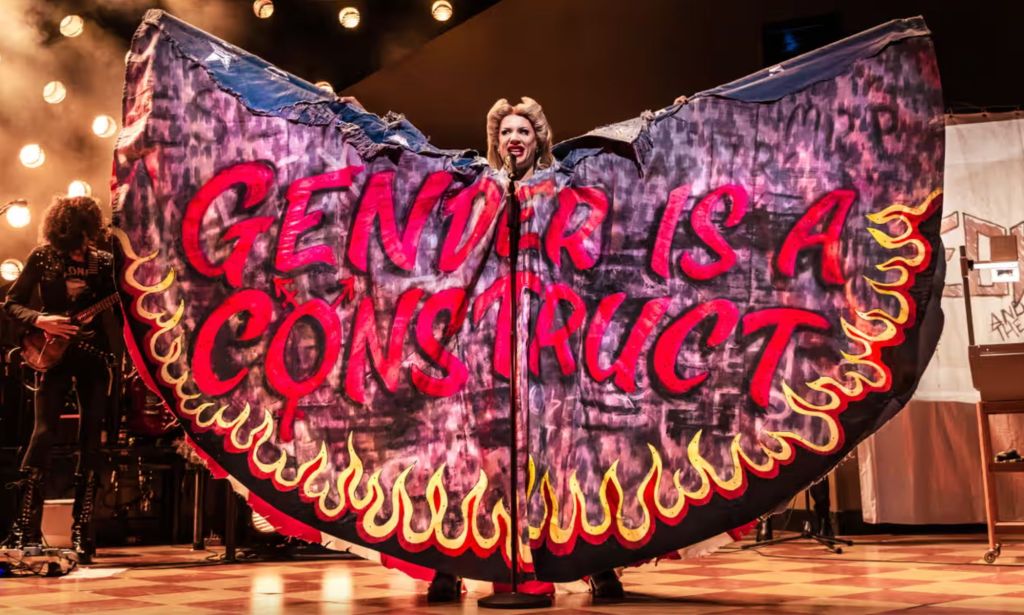
In 2020, The Stage Debut Awards went genderless. The best actor and best actress categories became best performer. The WhatsOnStage Awards adopted a similar move in 2022. At first, the latter’s categories were unnecessarily complex, such as “best supporting performer in a male-identifying role in a play”.
Earlier this year they were simplified, and Divina, who is non-binary and uses all pronouns, was nominated as best performer in a musical for the role of Hedwig.
Award categories are a hot topic. In the US in June, Alex Newell and J Harrison Ghee became the first non-binary Broadway stars to win Tony Awards, although both had to select whether to be entered into the actor or actress category.
Other non-binary Broadway stars, such as &Juliet’s Justin David Sullivan, opted out of the process. In July, non-binary star of The Last of Us, Bella Ramsey, was nominated for Best Lead Actress in a drama series at the Emmys, something which they have previously suggested made them feel uncomfortable.
Divina has detailed thoughts on the matter. Could all awards be genderless in the future, I ask? “Yes, I think so,” she says, choosing her words carefully for the first time in our conversation.
If not open to a public vote, there are ways for genderless categories to be abused and conducted unfairly, Divina notes. “If it’s music execs in a boardroom who are making the decisions, quite often those people are men. You look at the music industry, and quite often those awards are won by men.”
It’s possible that she’s referring to the BRITs, which adopted genderless categories for the first time in 2022. This year, all five nominees in the artist of the year category were men. Uproar ensued.
Is the trick then to ensure that these boardrooms aren’t just full of straight, white, cis men? For Divina, it goes further than that.
“You can have a room that looks very diverse, but if everybody is from the same background – maybe I’m not talking about the Tory Party – then it doesn’t make any difference, because they all think about the world in the same way.”
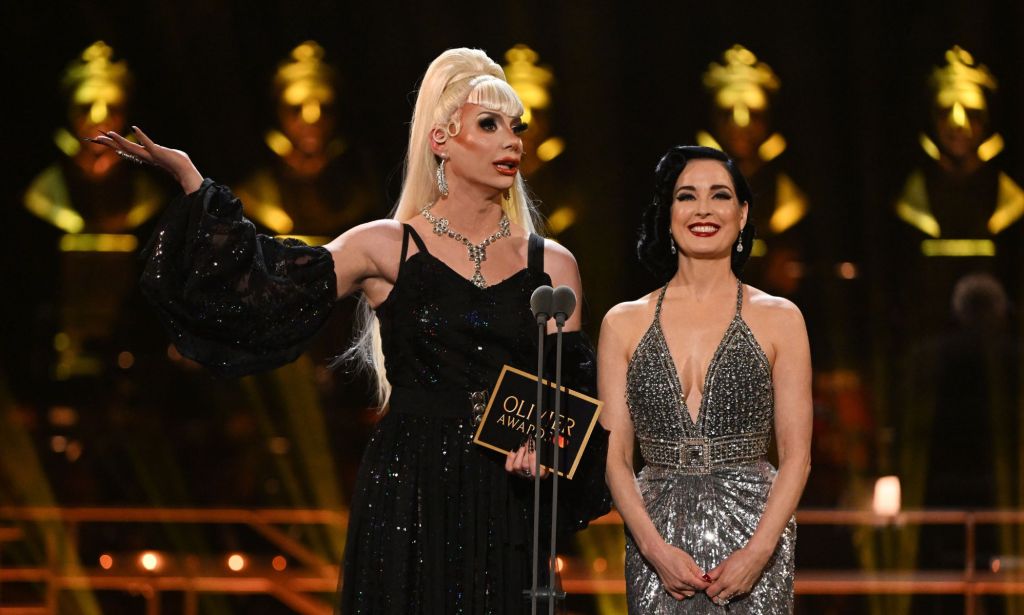
She suggests that everyone in an awards association should have a say in nominating and awarding artists, from the chief executive to the cleaners.
“There’s definitely a way to do it which more fair and honest … I don’t know, I don’t organise them,” she adds. “I [don’t] know exactly how you should do it, but I think it’s great that things are moving towards that.”
Divina realised she was non-binary while at university after reading philosopher Judith Butler’s seminal book, Gender Trouble. She is not a man or woman, but rather “just a human being, doing human being things”.
She explains: “It made everything make sense because the world also interacts with me that way. I am referred to as ‘madam’ constantly and I have been for ever.”
Recently, while buying a sausage roll at Greggs, one employee referred to Divina with male pronouns, while another used female pronouns. “And that’s OK, because that’s how I experience the world,” she admits.
Much like trans and non-binary people, drag performers have found themselves being targeted by a very vocal sub-section of social media recently.
A week before we speak, Divina’s Drag Race UK co-star Crystal was subject to a right-wing smear campaign after she performed with an angle grinder during a Pride event at an Essex theme park. A few weeks later, Cheryl Hole, was attacked for the sin of simply appearing on BBC cooking programme Celebrity Masterchef.
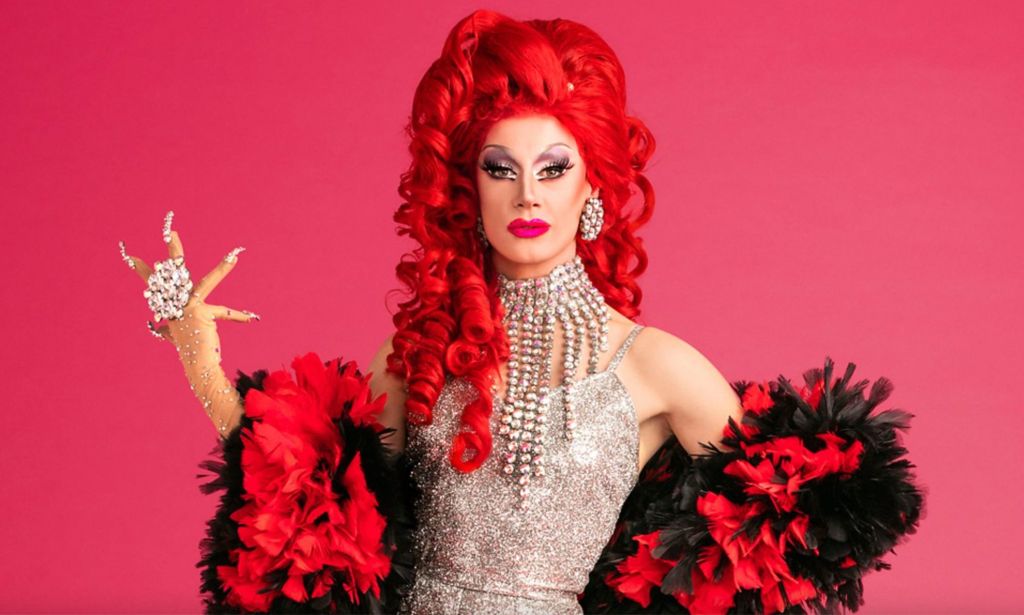
As Divina knows, however, drag has always been a pillar of British culture, from the variety shows of the 70s and 80s, starring the likes of Lily Savage and Dame Edna Everage, to more-recent BBC sitcom Mrs Brown’s Boys. Even before Drag Race UK, Divina had been on our screens putting her four-and-a-half octave range voice to use on BBC talent shows Altogether Now and The Voice.
As far as she is concerned, there are drag shows that aren’t appropriate for a family audience, and those that are.
“Art is not always suitable for everybody. You don’t take a five year old to watch the Saw movies, but you would take [them] to Barbie,” she points out.
It’s similar with drag. “If I’m performing in a nightclub, or I’m doing my show … I’ve made it how I want to make it. My show is not always appropriate for a seven year old, but if I’m doing a panto, a theatre show, or a Drag Queen Story Time, it’s a completely different product.”
A backlash won’t deter Divina from being on stage and doing what she’s best at. Once she’s wrapped up Spongebob, she’ll take a short break, before prepping to become the Evil Queen at this year’s Snow White at the Wyvern Theatre, in Swindon.
Next, she’d love to take on a role in La Cage aux Folles, or Priscilla, Queen of the Desert. But really, she’s just happy to be a booked and busy British drag legend.
“My entire modus operandi has been, I just want to work,” she says. “As long as I’m paying my bills, that’s making it for me.”
Divina De Campo will be hosting The Stage Debut Awards on 1 October. Tickets to the event, which include a three-course meal, live performances and a seat at the awards are available now.
Members of the public can vote in the best West End debut performer category now.
How did this story make you feel?

